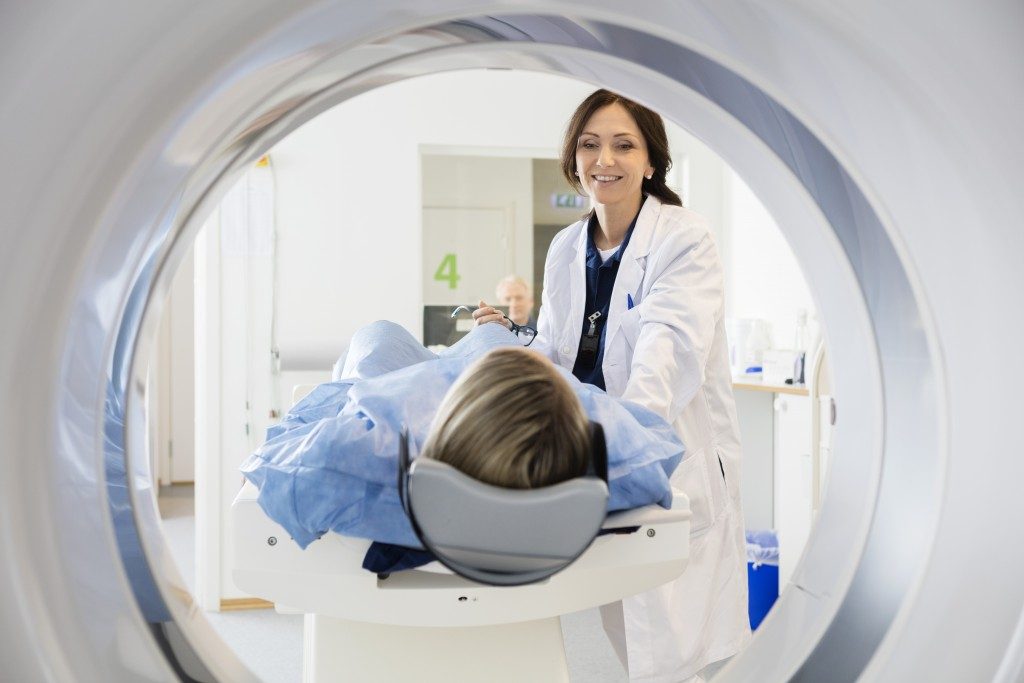Are you familiar with MRI machines? Abbreviated as MRI, magnetic resonance imaging is a medical diagnostic tool that creates detailed images of body tissues and organs using computer-generated radio waves and a magnetic field. MRI machines are tube-shaped magnets big enough for you to lie inside. Physicians utilise MRIs to monitor the effects of treatments and diagnose diseases.
The Different Types of MRI Exams
The typical magnetic resonance imaging examinations are breast scans, cardiac MRI, functional MRI (fMRI), magnetic resonance angiography (MRA), and Magnetic resonance venography (MRV). There are other types of scan as well. It’s also worthy of note that an MRI scan has a number of uses. Some of the uses of MRI scans include:
- checking for injuries in large joints like knees and shoulders
- assessing the liver to identify tumours and sources of jaundice
- checking for signs of a tumour or stroke in the brain
- examining breasts when ultrasounds and mammograms are inconclusive
- determining the cause of severe back pain
- monitoring the heart for structural abnormalities dysfunctional ventricles (heart chambers) and valve disease
- evaluating pelvic pain and uterine anomalies in women
Preparation
 Eat normally and take your prescribed medication, before an MRI examination –unless your doctor instructs you otherwise. When you go for an MRI scan, you’ll be asked to change into a gown and remove metallic accessories or items that might interfere with the procedure.
Eat normally and take your prescribed medication, before an MRI examination –unless your doctor instructs you otherwise. When you go for an MRI scan, you’ll be asked to change into a gown and remove metallic accessories or items that might interfere with the procedure.
If you have metal objects such as shrapnel or bullets inside your body, your doctor might advise you against taking an MRI exam. Additionally, you don’t qualify for an MRI scan if you have a pacemaker, aneurysm clip, or a cochlear implant.
What to Expect
Most machines will require you to lie down on a bed. Your MRI technician will communicate with you via intercom to ensure you’re comfortable. It’s important to stay still during the scan, as movements can disrupt the images.
You may hear clicking sounds or banging noises during an MRI, which is perfectly normal. Some MRI examinations will require you to hold your breath. In case of any discomfort, you’re advised to ask the radiologist to stop the scan.
What Next After an MRI Scan?
The MRI technician will examine the images to see whether any more are needed. You can go about your day-to-day activities after the scan is over.
The Side Effects
Rarely do patients experience side effects from MRI scans. However, those who experience claustrophobia can get migraines or feel nauseated. If you feel any signs of sickness after an MRI scan, you should consult your doctor.
Recent Advancements in MRI Technology
Thanks to technology, you don’t have to take MRI exams lying down. You can opt for an upright MRI in London. An upright MRI scanner features an open design that minimises claustrophobia and enhances the comfort of patients during magnetic resonance imaging scans.
Conclusion
MRI scanning is a powerful and non-invasive technique that could help us diagnose and monitor treatment. Please explore our website to learn more about MRI scans and other medical tests.

